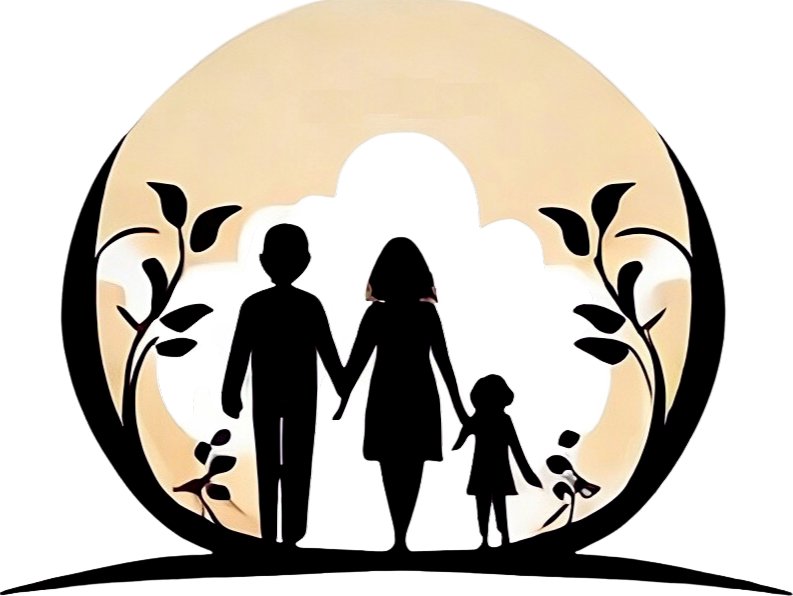- Celebrating Cultural Traditions as a Family
- Main Points:
- Importance of introducing kids to their cultural roots.
- Preserving traditions
- Building a strong sense of identity
- Creative ways to celebrate family traditions.
- 1. DIY Crafts and Decorations:
- 2. Cooking and Baking:
- 3. Storytelling and Games:
- 4. Cultural Outings or Events:
- 5. Documenting and Archiving:
- Building
- Exploring Cultural Roots
- Participating in Festivals and Holidays
- A Sense of Belonging and Identity.
- Preserving cultural heritage
- Building strong family bonds
- **LSI Keywords**: Cultural celebrations, Family heritage, Traditions and customs.
- Celebrating Cultural Traditions as a Family
- Key Points to Remember:
Celebrating Cultural Traditions as a Family
Family is the foundation of our lives, and one way to strengthen that foundation is by celebrating our cultural traditions together. These traditions are not just a way to pass on our heritage, but also a way to create lasting memories and deepen our bonds as a family.
When we celebrate our cultural traditions, we are not only honoring our ancestors and their way of life, but we are also instilling a sense of pride and belonging in our children. By taking the time to teach them about our customs, rituals, and celebrations, we give them a sense of identity and a connection to their roots.
There is something truly magical about coming together as a family to partake in these traditions. Whether it’s gathering around the table for a traditional meal, dressing up in cultural attire, or participating in age-old customs and rituals, these moments create a sense of unity and togetherness that can’t be replicated.
Furthermore, celebrating our cultural traditions as a family provides us with an opportunity to learn and grow together. We can learn about our history, the significance behind each tradition, and the values that our ancestors held dear. Through these experiences, we can pass down important lessons and teachings to future generations.
Main Points:

- Celebrating cultural traditions as a family can strengthen family bonds and promote a sense of identity and belonging.
- Creating and maintaining family traditions can help preserve cultural heritage and pass down important values and customs to future generations.
- Participating in cultural celebrations and activities can provide opportunities for learning and growth, as well as foster an appreciation for diversity.
- Incorporating cultural traditions into everyday life can enhance family dynamics and provide a sense of continuity and stability.
- Encouraging open dialogue and understanding between family members about cultural traditions can foster respect, empathy, and inclusivity.
- Exploring and embracing different cultural traditions as a family can broaden perspectives and promote intercultural understanding.
- Adapting and evolving cultural traditions to fit modern lifestyles can help ensure their relevance and sustainability for future generations.
- Supporting and participating in community cultural events and initiatives can strengthen community bonds and build a sense of pride and belonging.
- Celebrating cultural traditions as a family can create lasting memories and experiences that can be cherished for a lifetime.
Importance of introducing kids to their cultural roots.
It is important for parents to introduce their children to their cultural roots, as it helps them develop a strong sense of identity and belonging. When children are aware of their heritage, they gain a deeper understanding of who they are and where they come from.
By teaching kids about their culture, parents can instill values, traditions, and customs that have been passed down through generations. This helps foster a sense of pride and appreciation for their cultural heritage.
Introducing children to customs and traditions from an early age also helps them develop a broader perspective of the world. They learn to appreciate and respect different cultures and understand that diversity is something to be celebrated.
Preserving traditions
Introducing kids to their cultural roots is a way to preserve traditions that may otherwise be lost over time. It allows children to actively participate in cultural practices, such as cooking traditional dishes, celebrating holidays, or learning traditional dances.
Preserving traditions not only ensures that they are passed on to future generations but also creates opportunities for family bonding and creating lasting memories.
Building a strong sense of identity
When children are connected to their cultural roots, they have a better understanding of who they are and where they fit in the world. It provides a sense of grounding and helps them navigate their identity in a diverse society.
Children who are aware of their cultural heritage are more likely to feel a sense of belonging and pride in their background. This can boost their self-esteem and provide them with a strong foundation from which they can explore their own identities.
| Benefits of introducing kids to their cultural roots |
|---|
| Develops a strong sense of identity |
| Fosters appreciation for diversity |
| Preserves traditions |
| Creates opportunities for family bonding |
Creative ways to celebrate family traditions.
1. DIY Crafts and Decorations:
Create unforgettable moments by participating in DIY projects and creating decorations as a family. Whether it’s crafting holiday ornaments or designing customized table settings, these interactive activities not only foster creativity but also strengthen the bond between family members. Showcasing these homemade creations throughout the house can add a personal flair to your family traditions.
2. Cooking and Baking:
Food plays a central role in many cultural traditions, so why not gather as a family and cook or bake traditional dishes together? This can be a wonderful opportunity to share family recipes, pass down cooking techniques, and teach younger generations about their heritage. Not only will you create delicious meals, but you'll also create lasting memories and a sense of pride in preserving your family's culinary traditions.
3. Storytelling and Games:
Take a trip down memory lane by sharing stories and playing games that have been passed down through generations. Whether it’s gathering around the fireplace to share tales or engaging in friendly competitions, storytelling and games provide an opportunity to connect with your family’s history and values. This can be especially meaningful for children, as they learn about their roots and develop a sense of belonging to something greater.
4. Cultural Outings or Events:

Explore your cultural heritage by attending cultural outings or events as a family. This could include visiting museums, attending concerts or performances, or participating in community celebrations. Experiencing your culture in an immersive setting can deepen your understanding and appreciation for your family traditions while creating new memories together.
5. Documenting and Archiving:
Preserving your family traditions for future generations is just as important as celebrating them in the present. Consider creating a family scrapbook, photo album, or even a digital archive that documents your family’s customs, stories, and photographs. This can become a treasured keepsake that can be passed on to future generations, keeping your family traditions alive for years to come.
| Benefits of Celebrating Family Traditions Creatively: |
|---|
| 1. Strengthening family bonds. |
| 2. Preserving cultural heritage. |
| 3. Creating lasting memories. |
| 4. Teaching younger generations about their roots. |
| 5. Instilling a sense of belonging. |
Building
In our family, building cultural traditions is an important part of our lives. We believe that by nurturing and celebrating our diverse heritage, we can create a strong bond and a sense of identity within our family. Building these traditions not only helps us connect with our roots but also teaches our children about their heritage and the importance of cultural diversity.
Exploring Cultural Roots
One of the ways we build cultural traditions as a family is by exploring our individual cultural roots. We take the time to learn about our ancestors, their customs, and the traditions they have passed down through generations. We believe that understanding where we come from is crucial in shaping our beliefs and values. By exploring our cultural roots, we can appreciate the rich tapestry of traditions that make up our family’s heritage.
Participating in Festivals and Holidays
Participating in festivals and holidays is another way we build cultural traditions as a family. We make it a priority to celebrate important cultural events and holidays from all the cultures represented in our family. From Diwali to Hanukkah, Lunar New Year to Dia de los Muertos, we immerse ourselves in the celebrations, learning about the significance of each festival and participating in age-old traditions. This not only deepens our understanding of different cultures but also allows us to create lasting memories and moments of joy together.
- Attending cultural festivals
- Decorating our home with traditional symbols
- Preparing traditional food and meals
- Participating in cultural dances and music
By actively participating in festivals and holidays, we not only pass down traditions to the next generation but also show our children the importance of respecting and appreciating different cultures.
A Sense of Belonging and Identity.
Celebrating cultural traditions as a family brings a strong sense of belonging and identity. By engaging in customs and practices that have been passed down through generations, family members can feel connected to their heritage and roots. These traditions often play a significant role in shaping one’s identity and can provide a sense of pride in one’s cultural background.
Creating an environment where cultural traditions are celebrated allows for a deeper understanding and appreciation of different cultures. Family members can learn about the history behind certain traditions, the significance of specific rituals, and the values that are embedded in these practices.
Through participating in cultural celebrations, families can develop a shared sense of identity. These traditions can become a part of the family’s collective narrative, shaping the stories that are passed down from one generation to the next.
Preserving cultural heritage
Celebrating cultural traditions also helps in preserving the rich cultural heritage that may otherwise be lost over time. By actively engaging in practices that have been handed down through generations, families are ensuring that these traditions continue to be carried forward.
This preservation is vital as it helps maintain a connection to the past, allowing future generations to understand and appreciate their cultural heritage. It also provides an opportunity for families to connect with their extended relatives and community who share the same cultural background.
Building strong family bonds
Participating in cultural traditions as a family can create lasting memories and strengthen the bond between family members. These celebrations often involve coming together, sharing meals, and engaging in activities that inspire a sense of togetherness.
These shared experiences offer an opportunity for family members to connect on a deeper level and form strong emotional bonds. By upholding these traditions, families can create a sense of unity and support, ultimately strengthening the family unit.
In conclusion, celebrating cultural traditions as a family is a powerful way to cultivate a sense of belonging and identity. By actively participating in these traditions and passing them down to future generations, families can preserve their cultural heritage while also fostering strong family bonds.
**LSI Keywords**: Cultural celebrations, Family heritage, Traditions and customs.
Celebrating Cultural Traditions as a Family
Family heritage is an important part of our identities, and one way to honor and celebrate our cultural roots is by embracing traditions and customs passed down through generations. Cultural celebrations provide an opportunity for families to come together, connect with their past, and create lasting memories.
When it comes to cultural celebrations, there are countless traditions and customs that vary from one family to another. These traditions can range from religious holidays and festivals to specific culinary dishes or even unique rituals. Whatever the traditions may be, they serve as a way to preserve and share our heritage with future generations.
One way to celebrate our cultural traditions as a family is by organizing and participating in events or festivals that are specific to our heritage. For example, if your family has Irish roots, attending a St. Patrick’s Day parade or hosting an Irish-themed dinner can help create a sense of connection and pride in your heritage.
Another way to celebrate is by incorporating traditional customs into our daily lives. This could involve practicing certain rituals or wearing traditional clothing on important occasions. For example, if your family comes from a culture that celebrates Diwali, you could decorate your home with lights, exchange gifts, and prepare traditional Indian dishes during the festival.
In conclusion, celebrating cultural traditions as a family is an enriching experience that allows us to connect with our roots, learn about our heritage, and create cherished memories. Whether it’s through organized events, daily practices, or involving the whole family, embracing our cultural celebrations strengthens our familial bonds and keeps our traditions alive for future generations.
Key Points to Remember: |
|---|
|
– Cultural celebrations provide an opportunity for families to connect with their past and create lasting memories. – Traditions and customs vary from one family to another and serve as a way to preserve and share heritage. – Organizing and participating in events specific to your heritage can create a sense of connection and pride. – Incorporating traditional customs into daily life helps keep traditions alive. – Involving the whole family strengthens bonds and fosters a sense of belonging. – Celebrating cultural traditions creates cherished memories and keeps traditions alive for future generations. |




